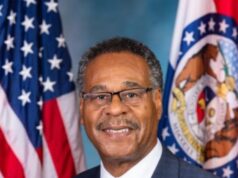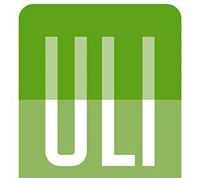ENERGY-SAVING HOME PROMPTS INCREASED INTEREST IN RURAL DEVELOPMENT’S HOUSING PROGRAMS
USDA Helps a 73-year-old Kentucky Widow Buy Her First Home
Washington, D.C. – June 23, 2011 – (RealEstateRama) — Agriculture Under Secretary for Rural Development Dallas Tonsager today highlighted a growing interest in energy-efficient home building. He said builders and nonprofit organizations throughout the country have been calling USDA Rural Development and especially the Kentucky State Office to learn more details about an affordable, energy-efficient home that USDA helped finance. Recently, USDA featured the home and a story about its 73-year-old owner, a widow who had never owned a home before, on the USDA blog. That blog post resulted in a significant response from readers.
“USDA Rural Development’s single-family-housing programs can help finance the building of energy-efficient homes,” Tonsager said. “June is National Homeownership Month, and USDA is especially pleased to see the growing interest from builders and nonprofit organizations in our homeownership programs.”
The home, in Vanceburg, Ky., uses 75 percent less energy than a standard newly constructed house. The reduced energy costs are attributable to the use of rigorous energy-efficient design and construction standards, known as “passive house principles.” These standards include nearly air-tight construction, superior insulation and highly-efficient equipment such as triple-pane windows that provide passive solar heat in the winter, an energy recovery ventilator system and a hybrid heat pump- water heater. The home also contains eight solar panels on the roof that provide most of the needed electricity.
The project was conceived through a partnership with USDA Rural Development and People’s Self-Help Housing, Inc. Elizabeth Bonner, the new homeowner, was directed to Rural Development because People’s Self-Help Housing, Inc. was familiar with the agency’s expertise in mortgage lending and rural homeownership. Bonner’s new energy-efficient home cost about $130,000 to construct, and she received financing from Rural Development, People’s Self-Help Housing, the U.S. Department of Housing and Urban Development (HUD) and the Federation of Appalachian Housing Enterprises (FAHE). The partnership USDA forged to help Bonner become a homeowner is the kind that the Obama administration is emphasizing to maximize federal resources for rural communities.
Rural Development provided mortgage financing through the agency’s single family housing direct loan program. These loans help low-income individuals or households purchase homes in rural areas. Funds can be used to build, repair, renovate or relocate a home, or to purchase and prepare sites, including providing water and sewage facilities. Since the start of the current fiscal year, USDA Rural Development has financed approximately 80,000 home loans for rural residents.
In addition to rural housing, Rural Development also offers a variety of energy-efficiency programs for homeowners and businesses. The agency provides funding for the development and commercialization of renewable energy sources including wind, solar, geothermal, hydrogen, ocean waves, hydroelectric, biomass, and biofuel to change the way people power their homes, businesses and industries. By working to make renewable energy sources commercially viable, USDA Rural Development is also creating sustainable opportunities for wealth, new jobs and increased economic activity in rural America.
USDA, through its Rural Development mission area, administers and manages housing, business and community infrastructure and facility programs through a national network of state and local offices. These programs are designed to improve the economic stability of rural communities, businesses, residents, farmers and ranchers and improve the quality of life in rural America. Rural Development has an existing portfolio of more than $150 billion in loans and loan guarantees. Visit http://www.rurdev.usda.gov for additional information about the agency’s programs or to locate the USDA Rural Development office nearest you.
#
USDA is an equal opportunity provider, employer and lender. To file a complaint of discrimination, write: USDA, Director, Office of Civil Rights, 1400 Independence Avenue, SW, Washington, DC 20250-9410 or call (800) 795-3272 (voice), or (202) 720-6382 (TDD).
Contact
Jessie Scott (202) 690-2385

















